DOJ sues Texas over Rio Grande barriers; Greg Abbott says feds ‘left me no other choice’

On the same day the U.S. Department of Justice filed a civil complaint against Texas over a floating barrier of buoys strung together in the Rio Grande River, Gov. Greg Abbott sent a letter to President Joe Biden saying that Texas has a right to defend its border. The Department of Justice said the floating barrier was constructed without federal authorization as required under the Rivers and Harbors Act and creates a humanitarian threat. The complaint seeks to stop construction of the barrier and to require Texas to remove it. But Abbott is having none of it. The Texas governor’s formal letter sent Monday is a follow-up to the notice he gave on Friday in response to the DOJ saying its civil action was coming. DOJ’s lawsuit also was filed Monday. Abbott’s two-page letter copies Attorney General Merrick Garland and three Texas officials: the provisional attorney general and heads of the Texas Military Department and Department of Public Safety. He also includes copies of two letters he previously sent to the president, the first of which was sent last November explaining Texas’ constitutional right to secure its border. The second he hand-delivered on January 8, 2023, outlining solutions the president could take immediately to secure the border. Abbott, a former Texas Supreme Court justice, wrote, “In accordance with Article I, § 10, Clause 3 of the U.S. Constitution, I have asserted Texas’s “sovereign interest in protecting [her] borders,” citing Justice Antonin Scalia’s dissent in the 2012 U.S. Supreme Court case, Arizona v. United States. “I have done so in my role as the commander-in-chief of our State’s militia under Article IV, § 7 of the Texas Constitution,” citing a ruling in the 2023 case, Abbott v. Biden, when the federal judge in this case held that “the Constitution forbids President Biden from bypassing the States [and] stepping into Governor Abbott’s shoes.” Abbott also states that the president’s “ongoing violation of Article IV, § 4 of the U.S. Constitution has left me no other choice” than to secure the Texas border and block illegal entry. He also points to arguments he made in the letters he previously sent and reiterates what he told the president in El Paso, Texas, on January 8: “All of this is happening because you have violated your constitutional obligation to defend the States against invasion through faithful execution of federal laws.” In response to DOJ attorneys claiming Texas’s floating marine barriers violate Section 10 of the Rivers and Harbors Act, Abbott says their analysis “misses the mark. In that statute, Congress decreed that ‘it shall not be lawful to build . . . any wharf, pier, dolphin, boom, weir, breakwater, bulkhead, jetty, or other structures in any . . . water of the United States.’ “To state the obvious, that statute does not describe any action by the State of Texas.” Texas began the Rio Grande initiative to prevent illegal entry on state land between ports of entry. Abbott also places the blame on Biden for any humanitarian crisis at the border. Responding to DOJ attorney accusations, he writes, “Mr. President, your finger points in the wrong direction. Neither of us wants to see another death in the Rio Grande River. Yet your open-border policies encourage migrants to risk their lives by crossing illegally through the water instead of safely and legally at a port of entry. Nobody drowns on a bridge. “If you truly care about human life, you must begin enforcing federal immigration laws,” he continued. “By doing so, you can help me stop migrants from wagering their lives in the waters of the Rio Grande River. You can also help me save Texans, and indeed all Americans, from deadly drugs like fentanyl, cartel violence, and the horrors of human trafficking.” The letter came as over 175,000 foreign nationals were reported illegally entering the southern border alone in June, including at least 70,200 in Texas, and as Department of Homeland Security Secretary Alejandro Mayorkas continues to claim the border is secure. Republished with the permission of The Center Square.
Will Sellers: History’s most significant event casts a long shadow

The late great U.S. Supreme Court Justice Antonin Scalia often told the story of his oral exam at Georgetown University. To graduate as a history major, he was required to answer questions from the faculty to demonstrate the sufficiency of his education and entitlement to a diploma. Asked to cite the most significant event in history, he thought it was a softball question and picked an event he considered important. Wrong! His inquisitor corrected him and disapprovingly stated: “No, Mr. Scalia; it was the Incarnation,” which means the birth of Christ, the Son of God, as both fully divine and fully human. So it is that this time of year, the seminal event on the Christian calendar is celebrated by the faithful and unfaithful alike. Some merely acknowledge it in their actions and time off, while others take the religious significance to heart and fully participate in the seasonal countdown of Advent. And while the secular celebration with all its associated trappings now largely undermines the religious significance, even the most secular cannot deny its importance and the overarching ideas it spawned. The Incarnation was a religious hurricane so powerful that it spun off secular tornados that impacted the world in very subtle ways. We see these secular manifestations most notably in buying, giving, and receiving gifts; God purchased our redemption by giving the gift of his Son; we replicate His example in a small way by the sacrifice of buying and then giving to others. But the secular fallout occurs in other things, too, that while hardly religious in themselves, are directly connected to the Incarnation. In fact, it would not be a stretch to conclude that most high-minded ideals trace their roots here. Think of self-sacrifice, scrupulousness, generosity, service to others, and the unity of family. While these virtues are secularized, they are lauded as worthy, important, and so critical to civilization that they form the basis for moral and character education. So even if the religious aspects of Christmas may not be acknowledged, the secular fallout, being so intertwined, cannot escape the cultural ramifications of the Incarnation. The Incarnation as a historical event is so widely known that few movies recount the story, but never to miss a beat, Hollywood, and before that other mass media, capitalized on the themes of Christmas. Initially, the obvious religious metaphors were depicted in some books and magazines, but now films that open in December achieve commercial success by harking back to themes based on the Incarnation. Be it nostalgia, sentimentality, or affairs of the heart, films during Christmas tend to bring people together and generally present a morality play focused on one or several virtues. And, while the religious overtones may be completely obscured, they are there nonetheless and easy to spot. People want optimism and hope that the future is brighter and that the new year will be better than the past – more so than ever before in this time of COVID. But films have helped us experience these things emotionally and provided us a means to feel happy, at least for the duration of the show. To feel good and confident even for a moment is the spark of commercial success for films. Frank Capra, the great film director of “It’s A Wonderful Life,” used this formula well and wisely throughout his long and storied career. But he didn’t direct films that told a good story and gave a momentary emotional rush merely for box office profits. Rather, he believed in fundamental values, permanent things, and timeless ideals and considered it his duty to give hope, provide optimism, and exalt the individual human actor over the various manifestations of greed expressed in impersonal bigness, not only in government but also in business, religious institutions, and communities. Capra’s films achieved both artistic and commercial success because they gave Depression-era audiences something with which to identify. Capra’s themes used the background drag of the Great Depression to give his hero an obstacle that was overcome not solely by individual effort, although that always played a critical part, but also by the collective efforts of friends who inspire, encourage, and become part of a unified effort to defeat evil. Whether it is George Bailey v. Mr. Potter, Mr. Smith v. Sen. Payne, Longfellow Deeds v. Lawyer Cedar, or John Doe v. D. B. Norton, each conflict created a crisis of conscience and a crucial decision requiring action. But Capra’s films show that action is not unilateral and is, instead, aided by the love, support, and encouragement from friends. Overcoming and achieving was not a singular endeavor, but a subtle spiritual effort where virtue ultimately triumphs. And the success of the hero gave audiences a renewed sense of purpose; that no mountain was too great or hurdle too high, but success in the defeat of adversity was possible by rightness of cause, individual commitment, and assistance from others. The hilarity of the film “You Can’t Take It With You” comes at the expense of stereotypes of corporatist drones, corrupt officials, and unanchored peons. And, in showing the conflicts on every level, Capra in many ways uses the fruits of the Incarnation to not only entertain but to give hope, encouragement, and purpose. So many who saw his films had little hope and diminished prospects. His films lifted people up, marginalized the mean spirited, and showed what true friendship meant and how happiness in and of itself is substantial and more important than material things, social status, or political influence. If the Incarnation seems passé, look around you. This one event spawned a completely new era that permeates most of the things we do. And, if you look at successful entertainment, such as movies, commercial achievement is often directly related to expressing the secular aspects of the Incarnation to show the entirety of a challenged but hopeful and confident humanity. Frank Capra’s films do this, and other successful Christmas films follow suit. Merry Christmas! _____________ Will Sellers is an Associate Justice
Steve Flowers: Donald Trump has a profound legacy in presidential history, especially if you are a conservative American

Presidential historians and most astute national political observers and chroniclers have concluded that the most profound legacy a president can achieve is the appointment of United States Supreme Court Justices. Presidents serve four-year terms. Justices serve for a lifetime. The Supreme Court of the United States is the ultimate final word on law and public policy in the United States. After they are appointed by the president and confirmed by the U.S. Senate, they are impregnable to political whims or influence. They are sovereign and omnipotent. They are treated royally and usually serve on the high tribunal for over two decades or more. Therefore, whether you like Donald J. Trump or not, he has a legacy. Most presidents are fortunate if they are able to name one justice to the court. Trump, over his four-year term, appointed and had confirmed three. If you are a conservative Republican, this feat by President Trump makes him one of the most bulwark conservative presidents in history. He has cemented his legacy forever and changed the judicial philosophy of the court for the next generation. Trump’s three appointments are not only well qualified, polished, distinguished, moderate conservatives, they are also young. Justice Neil Gorsuch is 53. He replaced Justice Anthony Kennedy who retired. Justice Brett Kavanaugh is 55. He replaced arch conservative Justice Antonin Scalia. The most consequential appointment by President Trump is the appointment and confirmation of Justice Amy Coney Barrett. She is only 48 and a solid conservative. Trump’s appointment of Judge Amy Barrett is truly historical. This appointment changed the entire ideology of the court to a solidly six-to-three conservative majority. Barrett’s appointment is the most pivotal block in Trump’s rebuilding of the Court. In the Gorsuch and Kavanaugh appointments, you replaced conservatives with conservatives. In Barrett, you are replacing a woman with a woman, but more importantly, you are replacing one of the most liberal justices in history with potentially one of the most conservative. In addition, at 48 Barrett will preside for the next three decades as will probably Gorsuch and Kavanaugh. Along with these three conservative justices to the Supreme Court, President Donald Trump has been able to appoint nearly 300 federal judges to the lower federal courts throughout America. Trump could not have accomplished this generational change of the court without the advice and consent of a Republican majority United States Senate. The Republican conservative stamp is also indelibly planted on the federal courts in Alabama. Senator Richard Shelby, in congruence with the Trump administration, has completely reshaped Alabama’s federal judiciary with very young, extremely qualified, conservative judges. Speaking of our United States Senators, our Senior Senator Richard Shelby was granted the omnipotent power to select all of our new, young, conservative judges throughout all of our districts – southern, middle and northern – not only because of his power, prestige and seniority but also because he was our only Republican senator. Our Junior U.S. Senate Seat has been held by a national liberal Democrat Doug Jones for the past three years. During his tenure, he toed the Democratic Senate line and wore that hat as the pawn and clone of the Democratic leadership in the Senate. Chuck Schumer told Jones to vote against Judges Brett Kavanaugh and Amy Barrett only because they were conservative Republican appointees. His refusal to even meet with Justice Amy Barrett showed a total lack of class and southern civility and gentlemanly manners. It was also revealed to me that he was angling to appease his liberal Democratic brethren in order to be Joe Biden’s Attorney General. Yes, folks, you heard me right. Do not be surprised if Doug Jones is not the next Attorney General of the United State in the Biden Administration. The bottom line is if you are a conservative American, Donald J. Trump has a profound legacy in presidential history with three conservative appointments to the United States Supreme Court. Steve Flowers is Alabama’s leading political columnist. His weekly column appears in over 60 Alabama newspapers. He served 16 years in the state legislature. Steve may be reached at www.steveflowers.us.
U.S. to get 9th justice with Dems powerless to block Amy Coney Barrett

A divided Senate is set to confirm Amy Coney Barrett to the Supreme Court, giving the country a ninth justice Monday as Republicans overpower Democratic opposition to secure President Donald Trump’s nominee the week before Election Day. Democratic leaders asked Vice President Mike Pence to stay away from presiding over her Senate confirmation due to potential health risks after his aides tested positive for COVID-19. But although Pence isn’t needed to break a tie, the vote would present a dramatic opportunity for him to preside over confirmation of Trump’s third Supreme Court justice. Senate Democratic leader Chuck Schumer and his leadership team wrote that not only would Pence’s presence violate Centers for Disease Control and Prevention guidelines, “it would also be a violation of common decency and courtesy.” But Senate Republicans control the chamber and Barrett’s confirmation isn’t in doubt. The 48-year-old Barrett would secure a conservative court majority for the foreseeable future, potentially opening a new era of rulings on abortion, gay marriage, and the Affordable Care Act. A case against the Obama-era health law is scheduled to be heard Nov. 10. Senate Majority Leader Mitch McConnell scoffed at the “apocalyptic” warnings from critics that the judicial branch was becoming mired in partisan politics as he defended its transformation under his watch. “This is something to be really proud of and feel good about,” the Republican leader said Sunday during a rare weekend session. McConnell said that unlike legislative actions that can be undone by new presidents or lawmakers, “they won’t be able to do much about this for a long time to come.” Schumer, of New York, said the Trump administration’s drive to install Barrett during the coronavirus crisis shows “the Republican Party is willing to ignore the pandemic in order to rush this nominee forward.” To underscore the potential health risks, Schumer urged his colleagues Sunday not to linger in the chamber but “cast your votes quickly and from a safe distance.” Some GOP senators tested positive for the coronavirus following a Rose Garden event with Trump to announce Barrett’s nomination, but they have since said they have been cleared by their doctors from quarantine. Pence’s office said the vice president tested negative for the virus on Monday. The confirmation was expected to be the first of a Supreme Court nominee so close to a presidential election. It’s also one of the first high court nominees in recent memory receiving no support from the minority party, a pivot from not long ago when a president’s picks often won wide support. Barrett presented herself in public testimony before the Senate Judiciary Committee as a neutral arbiter and suggested, “It’s not the law of Amy.” But her writings against abortion and a ruling on “Obamacare” show a deeply conservative thinker. She was expected to be seated quickly on the high court. “She’s a conservative woman who embraces her faith. She’s unabashedly pro-life, but she’s not going to apply ‘the law of Amy’ to all of us,” the Judiciary Committee chairman, Sen. Lindsey Graham, R-S.C., said on Fox News Channel. At the start of Trump’s presidency, McConnell engineered a Senate rules change to allow confirmation by a majority of the 100 senators, rather than the 60-vote threshold traditionally needed to advance high court nominees over objections. It was an escalation of a rules change Democrats put in place to advance other court and administrative nominees under President Barack Obama. On Sunday, the Senate voted 51-48 to begin to bring the process to a vote as senators, mostly Democrats, pulled an all-night session for the final 30 hours of often heated debate. Two Republicans, Lisa Murkowski of Alaska and Susan Collins of Maine, voted against advancing the nominee, and all Democrats who voted were opposed. California Sen. Kamala Harris, the vice presidential nominee, missed the vote while campaigning in Michigan. Monday’s final tally was expected to grow by one after Murkowski announced her support for the nominee, even as she decried filling the seat in the midst of a heated race for the White House. Murkowski said Saturday she would vote against the procedural steps but ultimately join GOP colleagues in confirming Barrett. “While I oppose the process that has led us to this point, I do not hold it against her,” Murkowski said. Collins, who faces a tight reelection fight in Maine, remains the only Republican expected to vote against Trump’s nominee. “My vote does not reflect any conclusion that I have reached about Judge Barrett’s qualifications to serve,” Collins said. “I do not think it is fair nor consistent to have a Senate confirmation vote prior to the election.” By pushing for Barrett’s ascension so close to the Nov. 3 election, Trump and his Republican allies are counting on a campaign boost, in much the way they believe McConnell’s refusal to allow the Senate to consider Barack Obama’s nominee in February 2016 created excitement for Trump among conservatives and evangelical Christians eager for a Republican president to replace the late Justice Antonin Scalia. Barrett was a professor at Notre Dame Law School when she was tapped by Trump in 2017 for an appeals court opening. Two Democrats joined at that time to confirm her, but none is expected to vote for her now. Republished with the permission of the Associated Press.
Kay Ivey: An inspirational pick
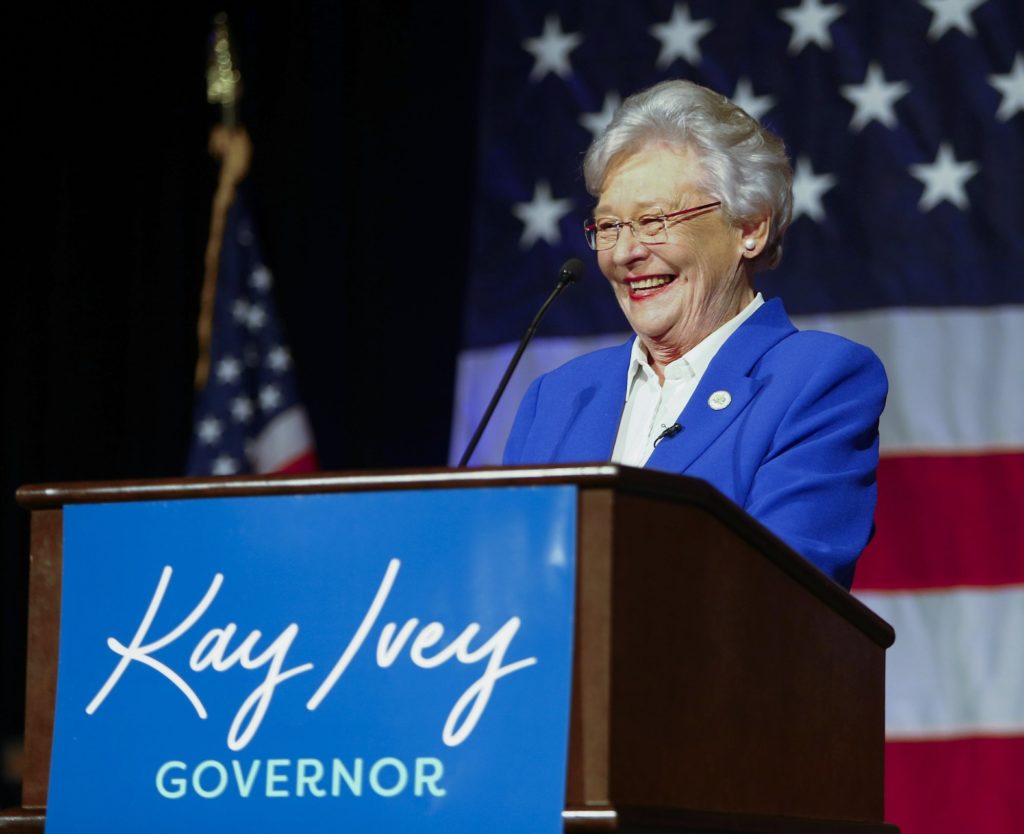
A century ago, the Suffragettes finally succeeded in winning the right to vote for women. They would be thrilled to see the nomination of a woman so uniquely qualified to serve on the U.S. Supreme Court as Judge Amy Coney Barrett, were they alive today. It’s easy to imagine them storming the streets of America and urging that Judge Barrett be confirmed, and by a wide margin. After all, the four female justices nominated before her were confirmed with lopsided votes by the U.S. Senate: 99-0 for Justice Sandra Day O’Connor, 68-31 for Justice Sonia Sotomayor, 63-37 for Justice Elena Kagan and 96-3 for the late Justice Ruth Bader Ginsburg. Sadly, it speaks to the times in which we are living that Judge Barrett’s vote by the Senate will most likely come down to a tight vote, with nearly every Democrat opposing her nomination. As governors who are either the first or second females to be elected in our respective states, we are rightfully proud to see diversity expand among the highest levels of government. Notably, however, our support for Judge Barrett hinges not on her being a female, but rather her superior intellect, unflappable composure and impeccable integrity, all which combine to make her eminently qualified in every way. Regretfully, we know – as do many others – that the climb for women into the upper echelon of American leadership has always been a bit steeper. After all, when was the last time a man’s haircut, the color of his tie or suit, or the number of children in his family were scrutinized as part of the public discourse? It is bittersweet that Judge Barrett followed her father’s advice that she could do anything her male counterparts could do, only better, and yet, sadly, millions of women appear to oppose her nomination simply because she interprets the law as-written, rather than siding with them on every issue. Is this the new standard for qualification? Many progressives, it seems, claim to believe in the power of women, but only for women who think and talk like they do. We applaud President Donald Trump for choosing Judge Amy Coney Barrett for service on our nation’s highest court; she may well be one of the most qualified, extraordinary picks during the past century, and we urge the United States Senate to confirm her nomination in short order. We especially like the direct answers Judge Barrett provided to two of the Senate Judiciary Committee members who questioned her last week. When Sen. Chris Coons, D-Delaware, suggested that Judge Barrett would vote in the same manner as the late Justice Antonin Scalia, a conservative for whom she had clerked earlier in her career, she calmly responded, “I assure you I have my own mind.” And when the Committee’s ranking Democrat, Sen. Dianne Feinstein, D-California, asked her whether she believed that Medicare was unconstitutional, she cited the “Ginsburg Rule,” so named for the late justice she will be following, of providing “no hints, no previews, no forecasts.” Perhaps one of the most powerful witnesses to speak in support of Judge Barrett was her former law student at Notre Dame, Laura Wolk. Ms. Wolk is totally blind, but before pursuing the “impossible dream” of becoming the first blind law clerk at the Supreme Court last year, she was struggling with her classwork as a first-year law student, fearful of failing. Laura recalled, “Judge Barrett leaned forward and looked at me intently. ‘Laura,’ she said, with the same measured conviction that we have seen displayed throughout her entire nomination process, ‘this is no longer your problem. It’s my problem.’” Ms. Wolk went on to say that Judge Barrett helped her see a pathway to success. She said the Judge will “serve this country with distinction not only because of her intellectual prowess, but also because of her compassionate heart and her years of treating others as equals deserving of complete respect.” When Judge Barrett raises her right hand to take the oath to “administer justice without respect to persons” and to “support and defend the Constitution of the United States,” it will be a win-win for every female – young and old alike during the past 100 years – who has dreamed of seeing women advance to the top positions of our government. Moreover, it will be a signal to every little girl – and boy – that the most qualified individual will get the job. Governors Kay Ivey of Alabama, Kristi Noem of South Dakota and Kim Reynolds of Iowa authored this column.
Tommy Tuberville: Doug Jones does disservice to Alabamians with his opposition to Judge Amy Coney Barrett

By Coach Tommy Tuberville My father, Charles, served in the U.S. Army, so I often heard the joke about the young recruit who was participating in his first military parade, looked around at his fellow soldiers, and smugly thought, “I’m the only one who’s marching in step.” That story sums up the way that Doug Jones has approached his job in Washington. Rather than representing the conservative beliefs and values of the millions of Alabamians he swore an oath to serve, Jones has, instead, voted the liberal, left-wing convictions that make up his core. As the hearings for Judge Amy Coney Barrett’s nomination to the U.S. Supreme Court begin, Jones has once again turned his back on his constituents and pledged to vote against her confirmation. Jones would not even extend the traditional courtesy of meeting with Judge Barrett and letting her outline her judicial philosophy. When it comes to giving fair consideration to President Donald Trump’s Supreme Court nominee, Doug Jones is a lost ball in high cotton. But that comes as no surprise. Jones voted against the confirmation of Justice Brett Kavanaugh and said he would have opposed Neil Gorsuch if he had been in the Senate at the time. Democrat Doug even voted twice to remove Donald J. Trump from office. Since becoming our placeholder senator, Doug Jones has opposed everything most Alabamians support and supported everything most Alabamians oppose. While liberal jurists manufacture law from the bench based upon the trending cultural touchstones of the day, Judge Barrett understands that her job is to interpret the Constitution as our founding father’s intended – a doctrine known as “Originalism” that she learned while clerking for Justice Antonin Scalia, a conservative icon who passed away far too soon. Her confirmation to the court will open the door to overturning the abomination known as Roe v. Wade, a decision that has no foundation in constitutional principles and invented from thin air a right to abortion that appears nowhere in our nation’s governing document. Judge Barrett’s record also indicates that she stands ready to protect our Second Amendment gun rights, preserve religious freedoms, shield conservative speech from the liberals who wish to silence it, and defend the basic liberties that make our nation the envy of freedom-loving people across the globe. Several liberal legal scholars who know Judge Barrett, her abilities, and her temperament have publicly supported her confirmation to the court despite their opposition to her conservative views and philosophy. They stand willing to put the good of the court and the needs of their country ahead of their own political beliefs. Yet Doug Jones refuses to even consider Judge Barrett. Despite the fact that he was elected to represent the deepest red of the nation’s Republican states, Jones has allied himself with fringe liberals like Nancy Pelosi, Chuck Schumer, Bernie Sanders, Alexandria Ocasio-Cortez, and Ilhan Omar. During President Trump’s last State of the Union Address, Jones joined the most liberal elements in Congress and sat on his hands throughout the speech, even when a Tuskegee Airman was promoted to Brigadier General and a veteran from Montgomery, Alabama was honored before the international audience. Unwilling to limit the false, negative attacks from his Senate campaign to my candidacy, Jones has spent thousands of dollars airing television ads that dishonestly accuse President Trump of disrespecting military veterans, a group that every Alabamian knows our commander-in-chief holds in the highest esteem. And despite the fact that Donald Trump carried Alabama with 62% of the vote in 2016, every action taken by Jones has indicated he believes that Hillary Clinton won the state. Perhaps it is the influence of the Hollywood and New York donors that funnel millions into his campaign war chest, or maybe it is his own deeply liberal philosophy that causes Doug Jones to demonstrate such disdain toward Alabama’s traditional values and tightly-woven moral fabric. Doug Jones’s refusal to represent their desires of Alabamians and support the confirmation of Judge Barrett to the high court tells you all you need to know about how he views us. Like the young recruit I mentioned at the beginning of this column, Jones thinks we are the ones who are out of step while he awkwardly marches forward to his own liberal cadence. On November 3, Alabamians have the opportunity to correct that mistake. Tommy Tuberville is a retired football coach. He lives in Auburn with his wife and is running against Democrat Doug Jones for U.S. Senate.
Bradley Byrne: A new Supreme Court Justice
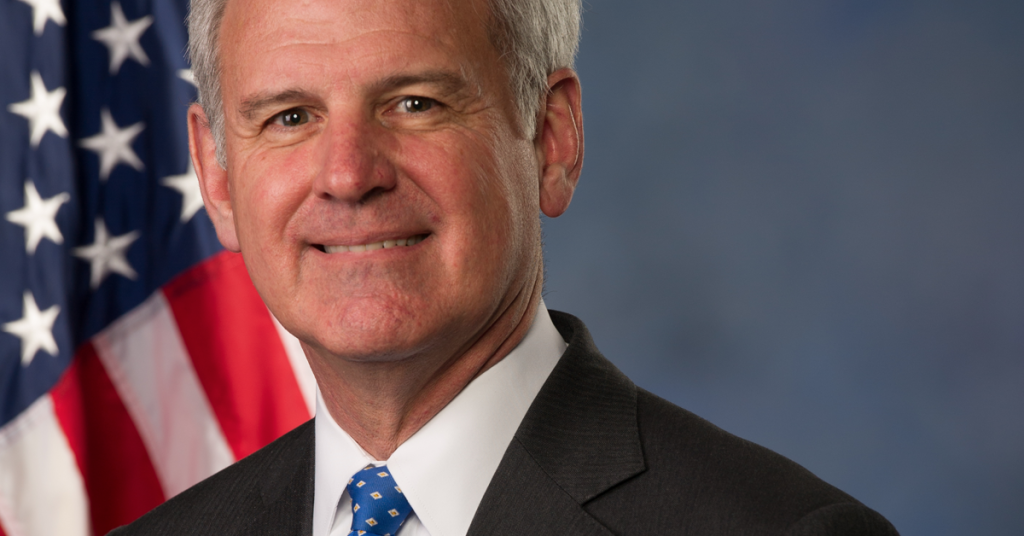
Bradley Byrne outlines his reasons for supporting President Trump’s nomination of Amy Coney Barrett.
Donald Trump picks conservative Amy Coney Barrett for Supreme Court
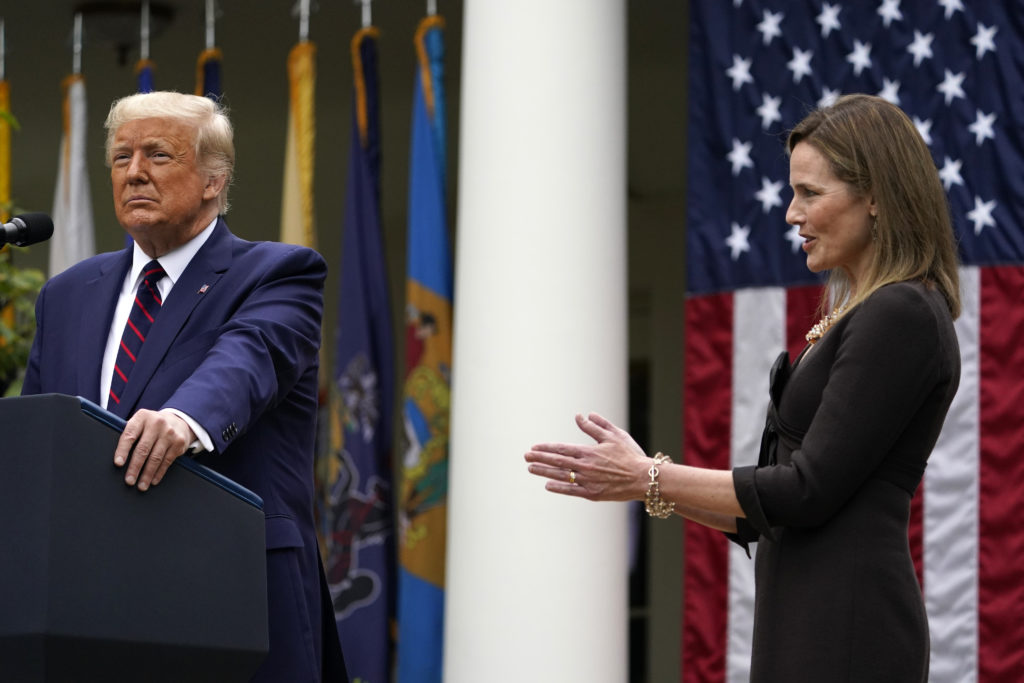
President Donald Trump nominated Judge Amy Coney Barrett to the Supreme Court on Saturday, capping a dramatic reshaping of the federal judiciary that will resonate for a generation and that he hopes will provide a needed boost to his reelection effort. Republican senators are already lining up for a swift confirmation of Barrett ahead of the Nov. 3 election, as they aim to lock in conservative gains in the federal judiciary before a potential transition of power. Trump, meanwhile, is hoping the nomination will serve to galvanize his supporters as he looks to fend off Democrat Joe Biden. Trump hailed Barrett as “a woman of remarkable intellect and character,” saying he had studied her record closely before making the pick. “I looked and I studied, and you are very eminently qualified,” he said as Barrett stood next to him in the Rose Garden. An ideological heir to the late conservative Justice Antonin Scalia, Barrett would fill the seat vacated after the Sept. 18 death of liberal icon Ruth Bader Ginsberg, in what would be the sharpest ideological swing since Clarence Thomas replaced Justice Thurgood Marshall nearly three decades ago. She would be the sixth justice on the nine-member court to be appointed by a Republican president, and the third of Trump’s first term in office. For Trump, whose 2016 victory hinged in large part on reluctant support from conservative and white evangelicals on the promise of filling Scalia’s seat with a conservative, the latest nomination in some ways brings his first term full circle. Even before Ginsburg’s death, Trump was running on having confirmed in excess of 200 federal judges, fulfilling a generational aim of conservative legal activists. “This is my third such nomination after Justice Neil Gorsuch and Justice Brett Kavanaugh, and it is a very proud moment indeed,” Trump said in the Rose Garden. Trump joked that the confirmation process ahead “should be easy” and “extremely non-controversial,” though it is likely to be anything. No court nominee has been considered so close to a presidential election before, with early voting already underway. He encouraged Democrats to take up her nomination swiftly and to “refrain from personal and partisan attacks.” In 2016, Republicans blocked President Barack Obama’s nomination of Merrick Garland to the Supreme Court to fill the election-year vacancy, saying voters should have a say in the lifetime appointment. Senate Republicans say they will move ahead, arguing the circumstances are different now that the White House and Senate are controlled by the same party. Senate Majority Leader Mitch McConnell said the Senate will vote “in the weeks ahead” on Barrett’s confirmation, adding that Trump “could not have made a better decision” in nominating the appellate court judge. The announcement came before Ginsburg was buried beside her husband next week at Arlington National Cemetery. On Friday, she was the first woman to lie in state at the Capitol, and mourners flocked to the Supreme Court for two days before that to pay respects. The set design, with large American flags hung between the Rose Garden colonnades, appeared to be modeled on the way the White House was decorated when President Bill Clinton named Ginsburg as his nominee in 1993. Barrett said she was “truly humbled” by the nomination, adding that she would be “mindful of who came before me.” She praised Ginsburg upon accepting the nomination, saying, “She has won the admiration of women across the country and indeed all across the world.” Within hours of Ginsburg’s death, Trump made clear he would nominate a woman for the seat, and later volunteered he was considering five candidates. But Barrett was the early favorite, and the only one to meet with Trump. Barrett has been a judge since 2017 when Trump nominated her to the Chicago-based 7th U.S. Circuit Court of Appeals. But as a longtime University of Notre Dame law professor, she had already established herself as a reliable conservative in the mold of Scalia, for whom she clerked in the late 1990s. She would be the only justice on the current court not to have received her law degree from an Ivy League school. The eight current justices all attended either Harvard or Yale. The staunch conservative had become known to Trump in large part after her bitter 2017 appeals court confirmation included allegations that Democrats were attacking her Catholic faith. The president also interviewed her in 2018 for the vacancy created by the retirement of Justice Anthony Kennedy, but Trump ultimately chose Brett Kavanaugh. Trump and his political allies are itching for another fight over Barrett’s faith, seeing it as a political windfall that would backfire on Democrats. Catholic voters in Pennsylvania, in particular, are viewed as a pivotal demographic in the swing state that Biden, also Catholic, is trying to recapture. While Democrats appear powerless to stop Barrett’s confirmation in the GOP-controlled Senate, they are seeking to use the process to weaken Trump’s reelection chances. Barrett’s nomination could become a reckoning over abortion, an issue that has divided many Americans so bitterly for almost half a century. The idea of overturning or gutting Roe v. Wade, the landmark 1973 decision that legalized abortion, has animated activists in both parties for decades. Now, with the seemingly decisive shift in the court’s ideological makeup, Democrats hope their voters will turn out in droves because of their frustration with the Barrett pick. Trump has also increasingly embraced the high court — which he will have had an outsize hand in reshaping -– as an insurance policy in a close election. Increases in mail, absentee, and early voting brought about by the coronavirus pandemic have already led to a flurry of election litigation, and both Trump and Biden have assembled armies of lawyers to continue the fight once vote-counting begins. Trump has been open about tying his push to name a third justice to the court to a potentially drawn-out court fight to determine who will be sworn in on Jan. 20, 2021. “I think this
Donald Trump interviews Amy Barrett while weighing a high court nominee
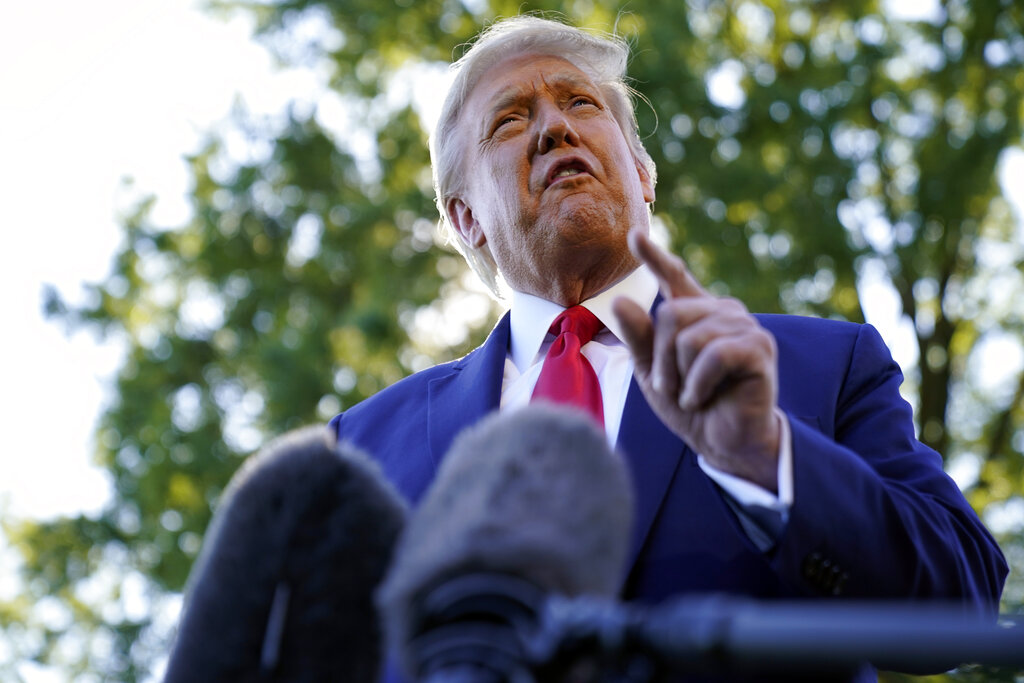
Trump said Monday he expects to announce his choice by week’s end, before the burial next week of Ginsburg.
Who’s a hypocrite? GOP, Dems debate past comments on court
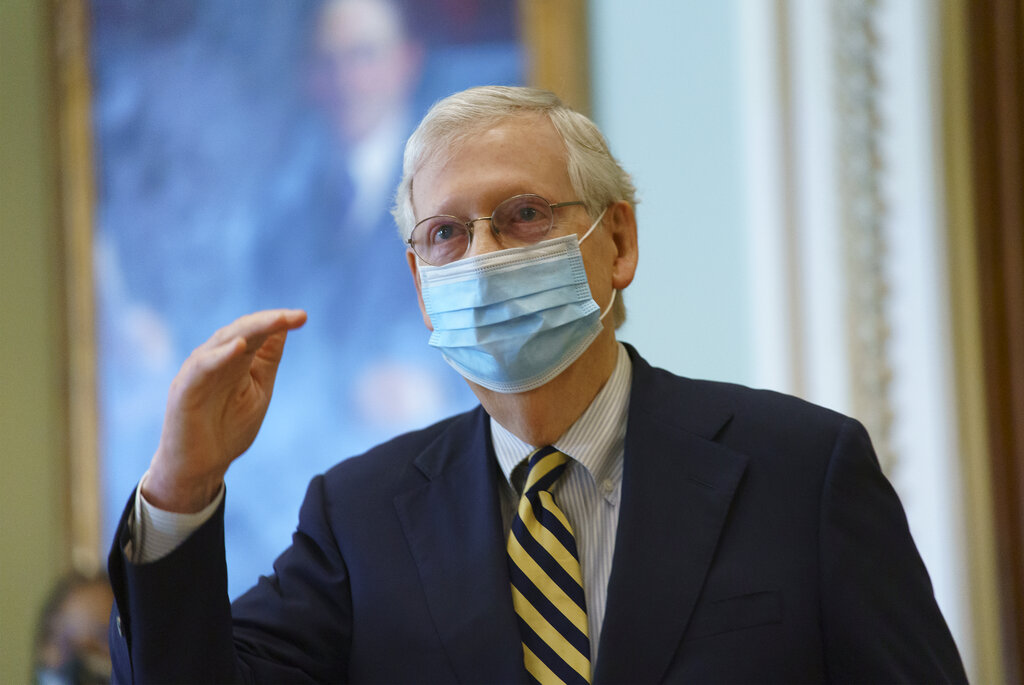
Senate Majority Leader Mitch McConnell has vowed that President Donald Trump’s as-yet unnamed nominee will receive a vote on the Senate floor “this year.”
Supreme Court Justice Ruth Bader Ginsburg dies at 87
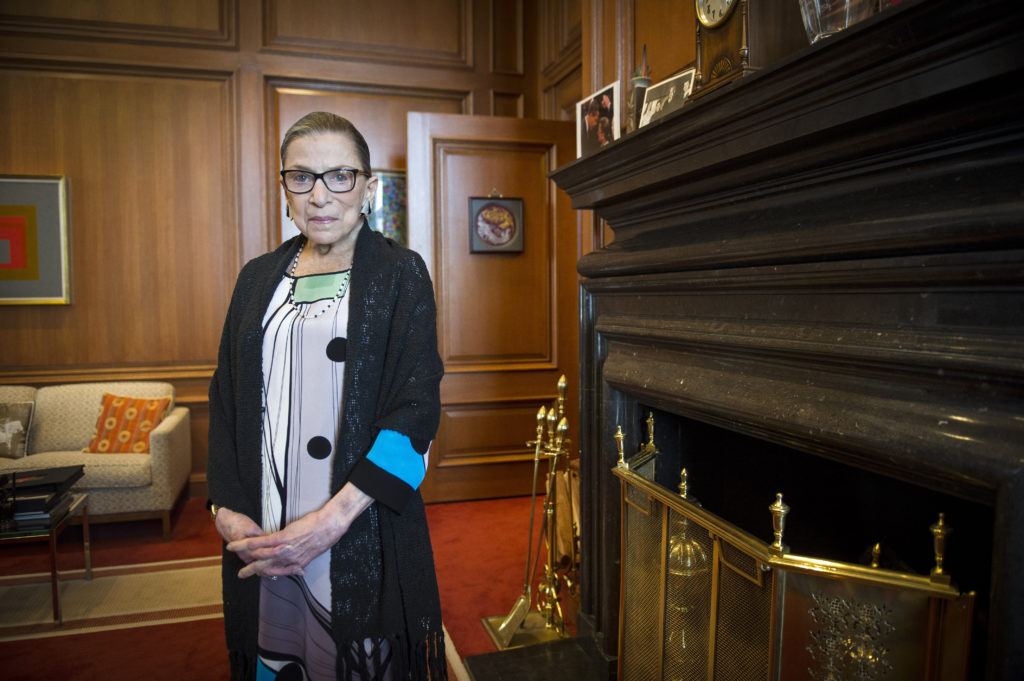
Supreme Court Justice Ruth Bader Ginsburg, a diminutive yet towering women’s rights champion who became the court’s second female justice, died Friday at her home in Washington. She was 87. Ginsburg died of complications from metastatic pancreatic cancer, the court said. Her death just over six weeks before Election Day is likely to set off a heated battle over whether President Donald Trump should nominate, and the Republican-led Senate should confirm, her replacement, or if the seat should remain vacant until the outcome of his race against Democrat Joe Biden is known. Chief Justice John Roberts mourned Ginsburg’s passing. “Our Nation has lost a jurist of historic stature. We at the Supreme Court have lost a cherished colleague. Today we mourn, but with confidence that future generations will remember Ruth Bader Ginsburg as we knew her — a tireless and resolute champion of justice,” Roberts said in a statement. Ginsburg announced in July that she was undergoing chemotherapy treatment for lesions on her liver, the latest of her several battles with cancer. Ginsburg spent her final years on the bench as the unquestioned leader of the court’s liberal wing and became something of a rock star to her admirers. Young women especially seemed to embrace the court’s Jewish grandmother, affectionately calling her the Notorious RBG, for her defense of the rights of women and minorities, and the strength and resilience she displayed in the face of personal loss and health crises. Those health issues included five bouts with cancer beginning in 1999, falls that resulted in broken ribs, insertion of a stent to clear a blocked artery, and assorted other hospitalizations after she turned 75. She resisted calls by liberals to retire during Barack Obama’s presidency at a time when Democrats held the Senate, and a replacement with similar views could have been confirmed. Instead, Trump will almost certainly try to push Ginsburg’s successor through the Republican-controlled Senate — and move the conservative court even more to the right. Ginsburg antagonized Trump during the 2016 presidential campaign in a series of media interviews, including calling him a faker. She soon apologized. Her appointment by President Bill Clinton in 1993 was the first by a Democrat in 26 years. She initially found a comfortable ideological home somewhere left of center on a conservative court dominated by Republican appointees. Her liberal voice grew stronger the longer she served. Ginsburg was a mother of two, an opera lover and an intellectual who watched arguments behind oversized glasses for many years, though she ditched them for more fashionable frames in her later years. At argument sessions in the ornate courtroom, she was known for digging deep into case records and for being a stickler for following the rules. She argued six key cases before the court in the 1970s when she was an architect of the women’s rights movement. She won five. “Ruth Bader Ginsburg does not need a seat on the Supreme Court to earn her place in the American history books,” Clinton said at the time of her appointment. “She has already done that.” On the court, where she was known as a facile writer, her most significant majority opinions were the 1996 ruling that ordered the Virginia Military Institute to accept women or give up its state funding, and the 2015 decision that upheld independent commissions some states use to draw congressional districts. Besides civil rights, Ginsburg took an interest in capital punishment, voting repeatedly to limit its use. During her tenure, the court declared it unconstitutional for states to execute the intellectually disabled and killers younger than 18. In addition, she questioned the quality of lawyers for poor accused murderers. In the most divisive of cases, including the Bush v. Gore decision in 2000, she was often at odds with the court’s more conservative members — initially Chief Justice William H. Rehnquist and Justices Sandra Day O’Connor, Antonin Scalia, Anthony M. Kennedy, and Clarence Thomas. The division remained the same after John Roberts replaced Rehnquist as chief justice, Samuel Alito took O’Connor’s seat, and, under Trump, Neil Gorsuch and Brett Kavanaugh joined the court, in seats that had been held by Scalia and Kennedy, respectively. Ginsburg would say later that the 5-4 decision that settled the 2000 presidential election for Republican George W. Bush was a “breathtaking episode” at the court. She was perhaps personally closest on the court to Scalia, her ideological opposite. Ginsburg once explained that she took Scalia’s sometimes biting dissents as a challenge to be met. “How am I going to answer this in a way that’s a real putdown?” she said. When Scalia died in 2016, also an election year, Senate Majority Leader Mitch McConnell refused to act on Obama’s nomination of Judge Merrick Garland to fill the opening. The seat remained vacant until after Trump’s surprising presidential victory. McConnell has said he would move to confirm a Trump nominee if there were a vacancy this year. Reached by phone late Friday, Sen. Lindsey Graham, R-S.C., the chairman of the Judiciary Committee, declined to disclose any plans. He said a statement would be forthcoming. Ginsburg authored powerful dissents of her own in cases involving abortion, voting rights, and pay discrimination against women. She said some were aimed at swaying the opinions of her fellow judges while others were “an appeal to the intelligence of another day” in the hopes that they would provide guidance to future courts. “Hope springs eternal,” she said in 2007, “and when I am writing a dissent, I’m always hoping for that fifth or sixth vote — even though I’m disappointed more often than not.” She wrote memorably in 2013 that the court’s decision to cut out a key part of the federal law that had ensured the voting rights of Black people, Hispanics, and other minorities was “like throwing away your umbrella in a rainstorm because you are not getting wet.” Change on the court hit Ginsburg especially hard. She dissented forcefully from the court’s decision in 2007 to
Millions from anonymous donors to influence Brett Kavanaugh fight
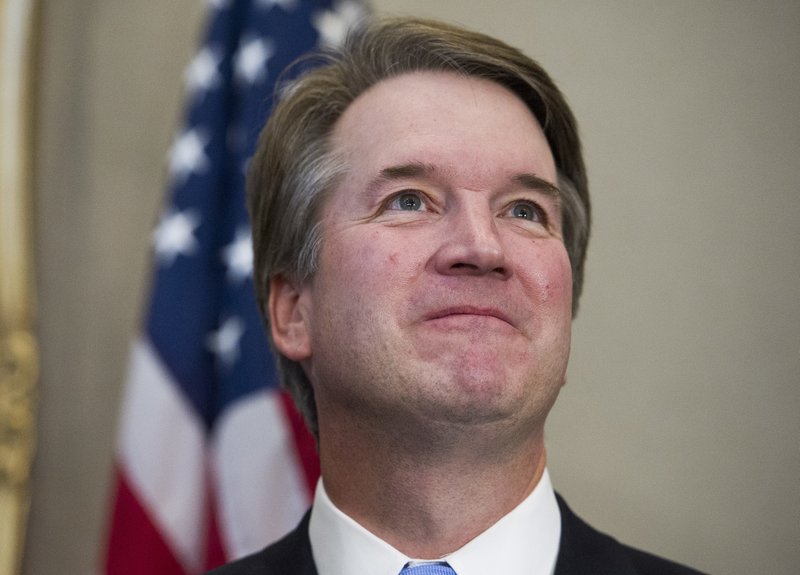
Millions of dollars from anonymous donors are helping shape the fight over President Donald Trump’s Supreme Court nominee as Republicans and Democrats undertake a bruising battle for ideological control of the nation’s loftiest tribunal. Even before Trump’s announcement Monday that he had picked Brett Kavanaugh, a federal appeals court judge, advocacy groups had begun lining up for and against the nomination and said they would spend heavily to influence the outcome of what’s expected to be a tumultuous confirmation process. One of the most prominent groups on the right, the Judicial Crisis Network, said it’s prepared to spend as much as $10 million or more in a pro-Kavanaugh advertising campaign that includes targeting vulnerable Senate Democrats. The liberal Demand Justice has spelled out plans for a $5 million effort to oppose Kavanaugh, beginning with ads aimed at pressuring moderate Republicans. While the groups’ positions on Kavanaugh are clear, their sources of cash aren’t. The anonymity is made possible by federal rules that permit groups structured as tax-exempt social welfare organizations to shield the identities of their benefactors. The upshot is that deep-pocketed donors may wield significant influence without ever revealing who they are, unless they choose to. Brendan Fischer of the nonprofit Campaign Legal Center said the arrangement is problematic because the public has no way of knowing whether the donors have a specific interest in a matter that may come before the Supreme Court. It also allows the donors to be rewarded by strategically disclosing their donations to people in positions of authority in Washington. “This secrecy prevents the public from evaluating these messages and keeps legislators from properly weighing the lobbying pressures to which they are subjected,” he said. Demand Justice and the Judicial Crisis aren’t the only advocacy groups mobilizing around Kavanaugh’s nomination, but they’re two of the most visible. Demand Justice launched stopkavanaugh.com shortly after Trump introduced Kavanaugh on Monday night. The website described his nomination as “the biggest fight of our lifetimes.” The Judicial Crisis Network set up confirmkavanaugh.com, calling Kavanaugh “a person of impeccable character, extraordinary qualifications, independence, and fairness.” The Judicial Crisis Network has received robust financial support for years from the Wellspring Committee, an obscure nonprofit founded a decade ago. Conservative activist Neil Corkery is Wellspring’s president and sole board member. He previously was treasurer of the Judicial Crisis Network. His wife, Ann Corkery, ran Wellspring before he did, according to federal tax return records. Both groups are registered as social welfare organizations, which are permitted to engage in limited political activities as long as politics isn’t their primary focus. Known by their IRS designation as 501(c)(4)s, they often include civic-minded groups such as homeowner associations and volunteer fire departments. “Involvement in political campaigns is not social welfare activity,” according to the political money website Open Secrets. “But it’s allowed as long as it is less than half of what the organization does.” Wellspring donated $39.3 million to the Judicial Crisis Network between 2010 and 2016, according to the tax filings. The single largest contribution, $23.4 million, was made in 2016, the same year President Barack Obama nominated Merrick Garland, also a federal appeals court judge, to the Supreme Court following Justice Antonin Scalia’s death. Garland’s nomination would be blocked by Senate Republicans, who argued the winner of the 2016 presidential race should pick Scalia’s replacement. The Judicial Crisis Network said it spent more than $17 million in 2016 and 2017 to run ads against Garland’s nomination and later in support of Neil Gorsuch, the federal appeals court judge nominated to the high court by Trump and confirmed by the Senate to replace Scalia. Wellspring isn’t required to disclose its donors. A list of its contributors for 2016, the latest year for which tax records are publicly available, excludes their names and addresses. It shows $32.2 million in contributions from eight separate sources. One donation was for $28.4 million, nearly 90 percent of Wellspring’s total revenue for that year. Neil Corkery declined to say how much Wellspring donated to the Judicial Crisis Network in 2017 and thus far in 2018. A message conveyed through Wellspring’s office manager said that information will be available after the tax returns for those years are filed. The organization’s 2016 return was submitted last November, so it may be months before new numbers are released. The Judicial Crisis Network and Wellspring share another connection: a small, largely unknown company called the BH Group LLC. Wellspring paid the BH Group $750,000 for unspecified public relations work while the Judicial Crisis Network paid the company $947,000 for unspecified research, according to tax records for 2016. The BH Group donated $1 million to Trump’s inaugural committee in December 2016. Demand Justice was formed just a few months ago and is structured in such a way that it doesn’t have to file annual tax returns. That’s because it’s “fiscally sponsored” by a tax-exempt social welfare organization called the Sixteen Thirty Fund. The Sixteen Thirty Fund files federal tax returns but doesn’t have to disclose the identities of its donors. Beth Kanter, a spokeswoman for the Sixteen Thirty Fund, said the organization “is nimble and can get projects off the ground quickly in a way that donors can’t do on their own.” In addition to Demand Justice, there are nearly 40 other initiatives sponsored by the Sixteen Thirty Fund, according to information filed with the District of Columbia’s Department of Consumer and Regulatory Affairs. Kanter said the Sixteen Thirty Fund “strictly follows all laws.” The organization’s president is Eric Kessler, the founder of Arabella Advisors and a former Clinton administration official. The executive director of Demand Justice is Brian Fallon, a former top aide to Senate Minority Leader Chuck Schumer, D-N.Y., who later advised Hillary Clinton’s presidential campaign in 2016. The Sixteen Thirty Fund’s tax return for 2016, the latest available, lists more than 60 donors who gave $21 million in contributions that ranged from $5,000 to $7.3 million. “We have a diverse set of donors that share our commitment to social justice,” Kanter


